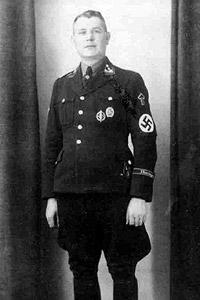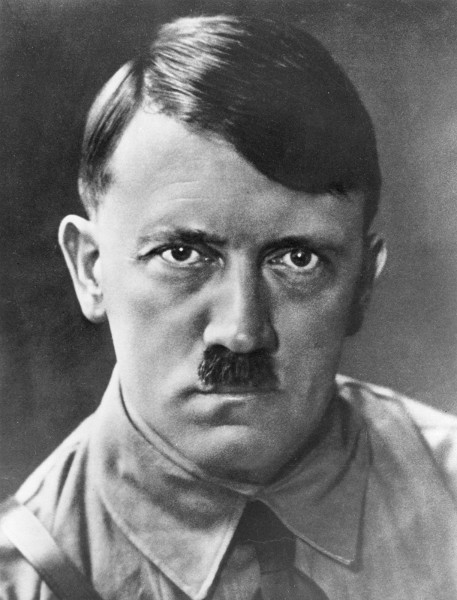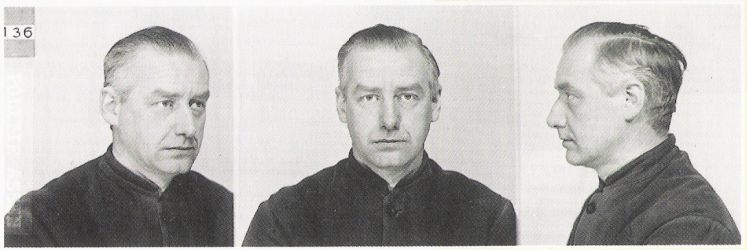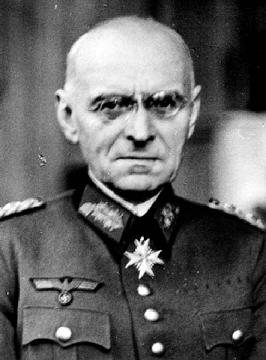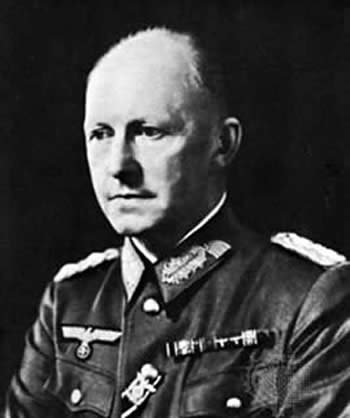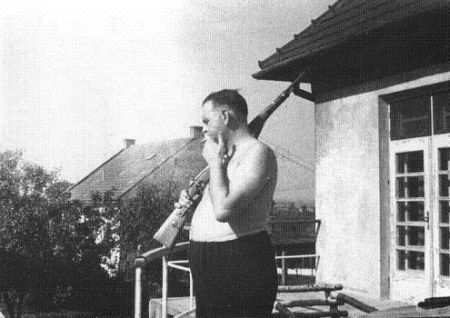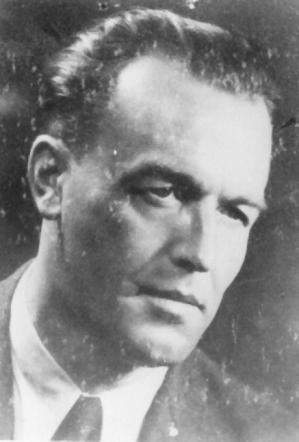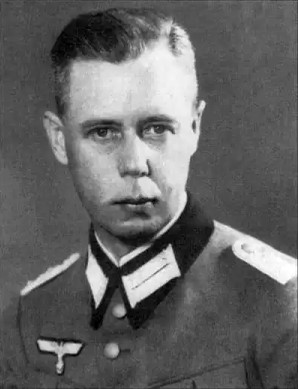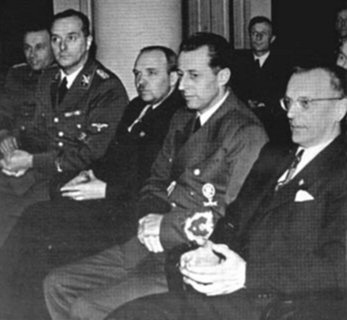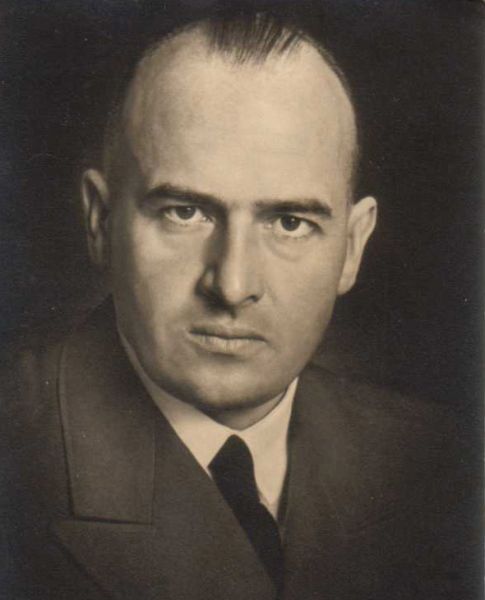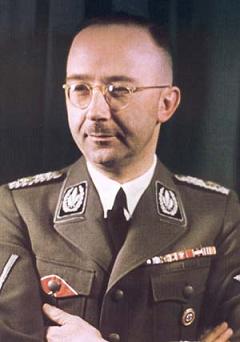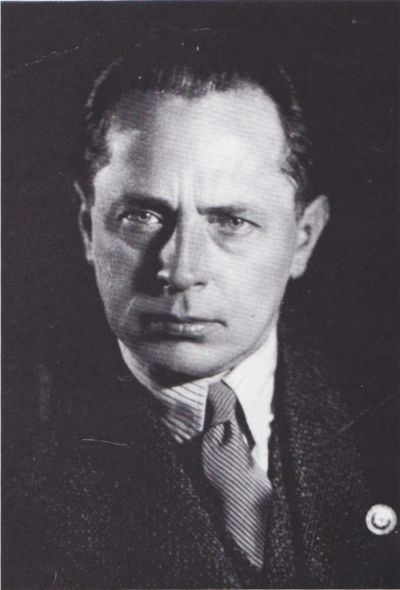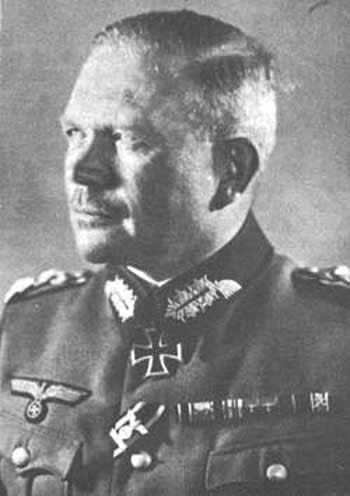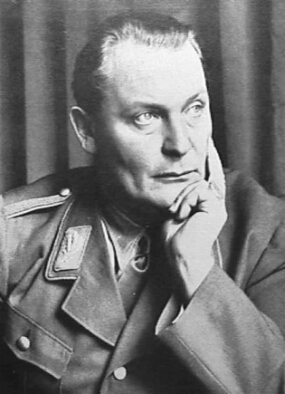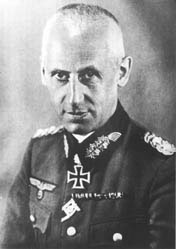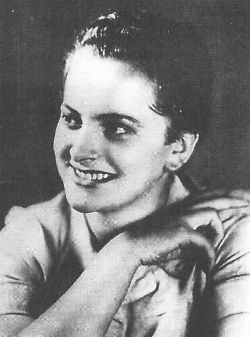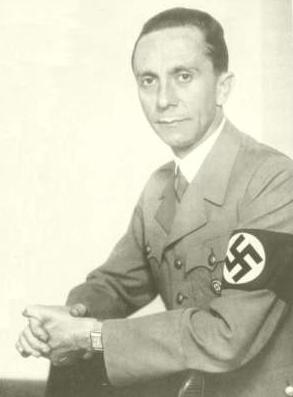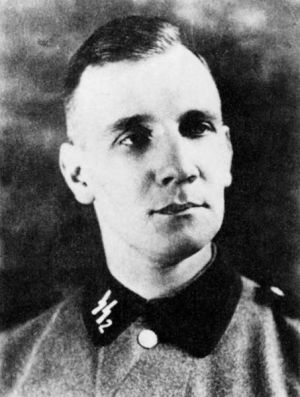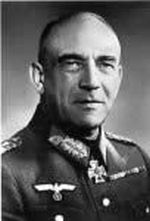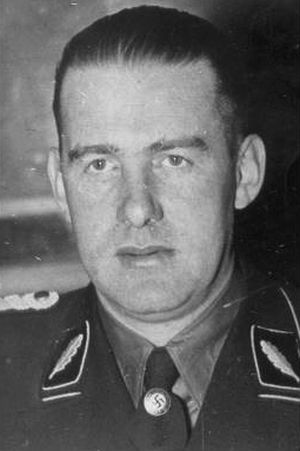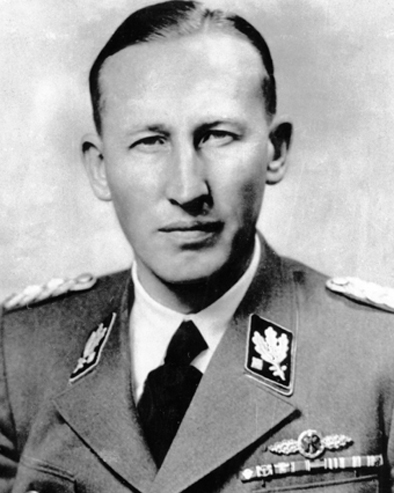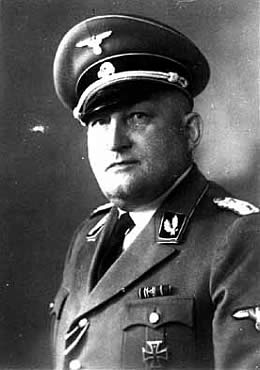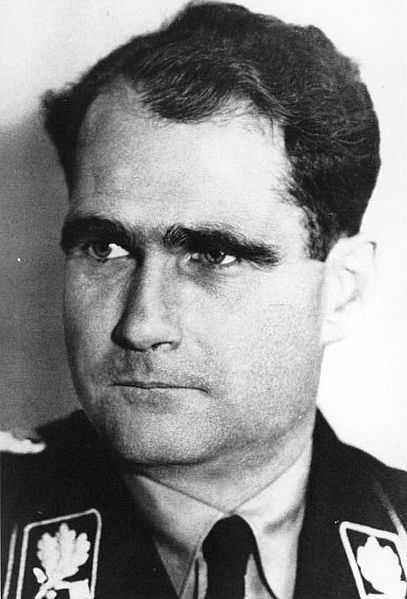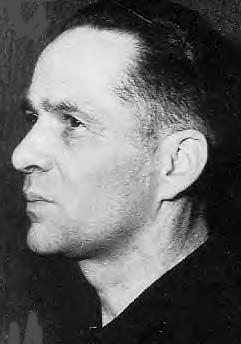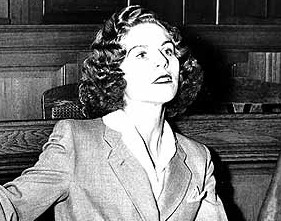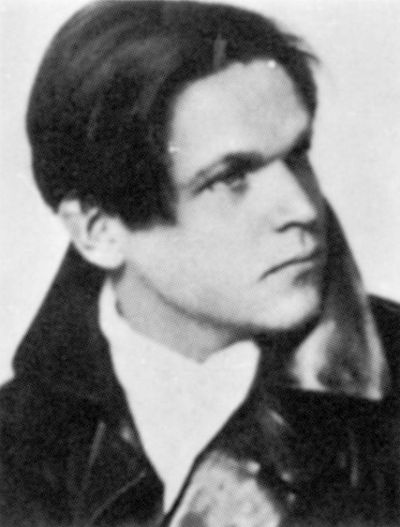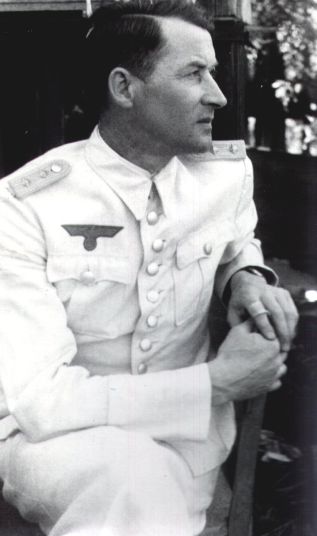Articles
- Article by Kevin Prenger
- Published on January 19th, 2025
Adam Grünewald
Adam Grünewald was a rather insignificant person within the SS, who managed, despite his limited abilities, to get promoted to SS-Sturmbannführer and commander of the Vught concentration camp in the Netherlands.
- Article by Gerd Van der Auwera
- Published on January 19th, 2025
Adolf Hitler
If there is one person who has made a huge impact on the history of the 20th century, it is undoubtedly Adolf Hitler. Up until today, interest in Hitler and his Third Reich is still great, witnesssed by the never ending flow of books about the dictator. The urge is great to understand how it is possible that one man could rally such masses of people, that one person could exert such a devastating influence on human history.
- Article by Kevin Prenger
- Published on January 19th, 2025
Albert Gemmeker
From October 1942 until April 1945, Albert Konrad Gemmeker was camp commander at transit camp Westerbork, from where more than 101,000 Jews were deported to concentration and extermination camps in Germany and Poland. Despite the fact that Gemmeker played an important role in the "Entjüdung" (dejudification or removal of Jews) of the Netherlands, the Jewish historian Abel Herzberg sometimes had the impression that he was "as much an anti-Semite as a butcher was anti-cow". The camp commander of Westerbork did not conduct a reign of terror, but was known as a correct person, who treated the Jews in his camp in a "humane" way.
- Article by Gerd Van der Auwera
- Published on January 19th, 2025
Alexander von Falkenhausen
Ernst Alexander Alfred Hermann von Falkenhausen, cousin of the Governor-general in Belgium during World War One, was born October 29, 1878 in Blumenthal, Silesia in a family of Prussian landed nobility. Hence, he spent his youth in a roomy country house where valets and maids saw to all his needs.
- Article by Tom Notten
- Published on January 19th, 2025
Alfred Jodl
Alfred Jodl was born May 10th , 1890 in Würzburg as the son of a soldier. At the age of 13, he attended the School of Cadets in Munich, graduating in 1910. After having completed his military training, he served in an artilleryregiment.
- Article by Kevin Prenger
- Published on January 19th, 2025
Amon Göth
Amon Goeth was born on December 11th,1908 in Vienna where he was raised as a Roman Catholic. His grandfather and his father had a printing company where books on military and economic history were printed and bound. In high school Amon was mainly interested in the exact sciences. He wasn’t an intellectual, although in later years he would consider himself to be a true philosopher. At an early age he joined the National Socialist movement.
- Article by Kevin Prenger
- Published on January 19th, 2025
Aribert Heim
At the start of the 21st century, Aribert Heim was the most wanted Nazi criminal, second only to Alois Brunner. As physician in concentration camp Mauthausen, he performed gruesome experiments on human guinea pigs. In October 2005, rumors went around he had been traced in Spain but afterwards, there was no trace of him. In 2012, Heim was officially declared dead by German authorities: he allegedly had died in Egypt as early as 1992.
- Article by Kevin Prenger
- Published on January 19th, 2025
Fritz Fullriede
When in March 1945, the search was on for a new fortress commander of the bathing resort of Kolberg on the Baltic Sea, the experienced front officer Fritz Fullriede was selected. Under his command, Fortress Kolberg held out long enough to evacuate the civil population. A large part of his troops likewise managed to escape to freedom under his command although Adolf Hitler had ordered him to hold the city at all costs. Even previously, this officer had ignored orders from higher authority. His name is also connected to the razzia (round up) in Putten.
- Article by Arnold Palthe
- Published on January 19th, 2025
Hans Fischböck
Dr. Hans Fischböck, born January 1895 in Geras, Niederdonau northeast of Vienna in Austria, has neither been sentenced in absentia nor arrested after the war. He was wanted in both Austria and the Netherlands; in Austria he was considered missing and in the Netherlands, the public prosecutor assumed he was dead. He was held responsible for the systematic robbing of Dutch stocks of raw materials, agricultural products, foreign currencies and gold. In addition he was held responsible for the massive razzias and the Arbeitseinsatz (Labor employment).
- Article by Robert Jan Noks
- Published on January 19th, 2025
Hans Frank
The name of Hans Frank is irrevocably tied to the crimes which have been committed by the Nazi regime in the so called General Government, the part of Poland that enveloped the largest part of Polen that was taken by the Germans in 1939. The area was not annexed by Germany but placed under German civil administration headed by Frank. Frank was a lawyer who was fiercely dedicated to the National socialist cause, before and during World War Two. Prior to the outbreak of the war, Frank was the leading Nazi lawyer and the most prominent theoretician and policy maker in the field of the theory of law within the Third Reich.
- Article by Gerd Van der Auwera
- Published on January 19th, 2025
Heinrich Himmler
Heinrich Himmler was born October 7th, 1900 in Munich, second son of the catholic director of a school, Gebhard Himmler and his wife Anna. He was named after his godfather, the Bavarian Prince Heinrich von Wittelsbach. As it was, the wealthy Himmler family had a good relationship with the Bavarian court. His conservative parents raised him in a very stern catholic and nationalistic fashion.
- Article by Arnold Palthe
- Published on January 19th, 2025
Heinrich Hoffmann
Heinrich Hoffmann, the personal photographer of the Führer was a man who did not come to the foreground often but was a prominent figure within the Nazi regime nonetheless. Apart from the fact that he was an important coq in the propaganda machinery of the Third Reich, he was seen regularly in the vicinity of prominent Nazis, a confidant of Hitler and he even competed with Goebbels for the most intimate bond with the Führer. After his arrest in May 1945, the same man who shot pictures for dozens of years in order to glorify Nazism would now be obliged, using the same pictures, to help the courts try the Nazis remaining after the war he had seen through his lenses.
- Article by Tom Notten
- Published on January 19th, 2025
Heinz Guderian
Heinz Guderian was born June 17th, 1888 in west Prussian Kulm, now Chelmno, Poland, the son of a career officer. In 1901 he went to military school and subsequently to the military academy in Berlin, graduating in 1907. Guderian went on to serve in the 10.Jägerbattalion, commanded by his father. Next, Guderian commenced officer’s training in Metz which was part of the German Empire at the time. After graduating in 1908, he was promoted to 2nd Lieutenant and returned to 10.Jägerbattalion. Thereafter he served in the 3.Signalsbattalion. He married Margarethe Goerne in 1933 and they had two sons; both were to serve in World War Two.
- Article by Gerd Van der Auwera
- Published on January 19th, 2025
Hermann Göring
Hermann Wilhelm Göring was born January 12th, 1893 at the Marienbadsanatorium in Rosenheim, a small town 40.3 miles south of Munich. His parents were Franziska Tiefbrunn and the older Heinrich Ernst Göring, the consul general in Haïti. Because his mother left Germany a few months after his birth, little Hermann lived with foster parents in Fürth for three years. When his father retired in 1896, Hermann returned to his parents. However, he could hardly forgive his parents for having left him behind. He could hardly bring himself to show respect, especially for his father who became an embittered alcohol addict after his retirement.
- Article by Tom Notten
- Published on January 19th, 2025
Hermann Hoth
Hermann Hoth was born April 12, 1885, the son of a medical officer. In 1904, Hoth took on officer’s training in the German army and was posted to the cavalry. In 1905 he switched to the infantry and was a Leutnant in the 72. Infanterieregiment. He served in this regiment during World War One as well. He served with distinction and was awarded both classes of the Eisernes Kreuz (Iron Cross).
- Article by Robert Jan Noks
- Published on January 19th, 2025
Irma Grese
The name of Irma Grese is less well known than that of Rudolph Höss, Josef Kramer or many other names of persons that left their black mark on the history of the Holocaust. Yet she was one of the most infamous female war criminals of that era. She belonged to a relative small group of women that had served in the camps and that were executed by hanging after the war for war crimes. She was the youngest woman to be executed by the British in the 20th century and the youngest camp guard ever to be executed by hanging.
- Article by Gerd Van der Auwera
- Published on January 19th, 2025
Joseph Goebbels
Josef Goebbels was born on October 29th, 1897 into a characteristic 19th century Biedermaier familiy (catholic, conservative and lower middle class) near Düsseldorf.
- Article by Kevin Prenger
- Published on January 19th, 2025
Kurt Gerstein
Introduction One of the most remarkable German resistance men is the protestant mining engineer Kurt Gerstein. As an SS-officer he was co-responsible for the delivery of Zyklon-B to Auschwitz. In Belzec's extermination camp he witnessed how hundreds of Jews were gassed. Shocked by what he saw, he tried to make contact with representatives of neutral countries, the Catholic and Protestant churches and the Dutch resistance. He hoped that his testimony would be made public and that the world leaders, among whom the pope, would make a stand against this genocide. But instead he encountered unbelief and indifference.
- Article by Wilco Vermeer
- Published on January 19th, 2025
Nikolaus von Falkenhorst
Nikolaus von Falkenhorst was born January 17, 1885 in Breslau, Silesia in Germany. He grew up in a typical family steeped in Prussian military tradition. He took military training and enlisted in the army in 1903 in the rank of reserve officer in the 7th Grenadier Regiment. He joined the General Staff as early as 1904. During World War One he served in various units, holding various ranks.
- Article by Kevin Prenger
- Published on January 19th, 2025
Odilo Globocnik
The Austrian Odilo Globocnik was in charge of Aktion Reinhard, the code name of the Nazi operation to exterminate the Jews in the Generalgovernment in Poland in the extermination camps of Belzec, Sobibor and Treblinka. In these camps, an estimated 1,7 million Jews were murdered. During his career, Globocnik often collided with other Nazi leaders for his self-willed attitude. He even was relieved of his function in the party in 1939 for corruption. Nonetheless, he enjoyed Himmler’s confidence and was given numerous functions and tasks within the SS.
- Article by Kevin Prenger
- Published on January 19th, 2025
Reinhard Heydrich
Reinhard Heydrich rose from leader of an intelligence agency, of which he was the only employee at first, to the second most powerful man within the Nazi terror machine. Joseph Goebbels called him: "The most radical and most successful fighter against enemies of the state." During the war he stood at the helm of the Reichssicherheitshauptamt (R.S.H.A. or Head office of state security) in which the security and police services he was in charge of, were united.
- Article by Kevin Prenger
- Published on January 19th, 2025
Richard Glücks
Richard Glücks was born April 22, 1889 in the village of Odenkirchen in the Rheinland, Germany. After graduation from the municipal gymnasium he worked as an apprentice in the fire insurance company of his parents.
- Article by Wesley Dankers
- Published on January 19th, 2025
Rudolf Hess
After the Second World War, no other person has given occassion to so many conspiracy theories as Rudolf Hess. Who was this man who supported Adolf Hitler from the beginning of his political career and his most loyal servant until 1941? His flight to Scotland on May 10th of that year was a complete surprise to each and everyone. Had Hess become insane, as has been argued by many or did he really think he could make peace with Great-Britain?
- Article by Kevin Prenger
- Published on January 19th, 2025
Rudolph Höss
Rudolph Höss was born November 25, 1900 in Baden-Baden, Baden-Württenberg. He was raised in the strictest Roman-Catholic sense and it was the dream of his father his son would become a priest. However, Rudolph lost his faith in the Church because a priest had broken his seal of confession.
- Article by Kevin Prenger
- Published on January 19th, 2025
Stella Goldschlag
She was young, attractive, well dressed and lacked no male attention. The only thing working against blond beauty Stella Goldschlag was her ancestry.
- Article by Kevin Prenger
- Published on January 19th, 2025
Veit Harlan
Movie director Veit Harlan was a celebrity within he Nazi cinema. He was known for his melodramatic motion pictures but today he is better known for having directed the anti-Semitic propaganda movie Jud Süß. It was also this director who was selected by Minister of Propaganda Joseph Goebbels to make a motion picture that was to convey the same message as his speech about Total War on February 18, 1943. On June 1, 1943, he sent the director a written order to make this Großfilm of movie corporation UFA which was to be named Kolberg.
- Article by Kevin Prenger
- Published on January 19th, 2025
Wilm Hosenfeld
Wilm Hosenfeld was an officer of the Wehrmacht during World War Two. He was stationed in Poland from the beginning of the war until Warsaw was captured by the Soviets; he served some 4.5 years in the Polish capital. Here he was confronted with the crimes committed against both Polish and German citizens by his fellow countrymen. He described the atrocities he saw and heard about in his diary, not only full of shame and guilt but he also helped some Jews and Poles to survive.
